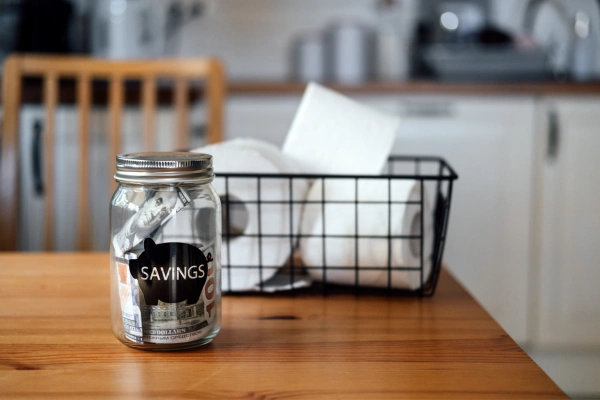Simple Strategies to Cut Costs Without Sacrificing Quality of Life
In a world where prices are climbing and paychecks feel smaller, learning how to live as cheaply as possible isn’t just smart—it’s essential. But living cheap doesn’t mean living poorly. It means being intentional with your money, trimming the fat, and focusing on what truly matters.
Whether you’re saving for something big, trying to get out of debt, or just want a little more breathing room, this guide will show you practical ways to cut your expenses and thrive on less.
🏠 1. Slash Housing Costs First
Housing is almost always the biggest monthly expense. Start here.
✅ Consider:
- Downsizing to a smaller apartment or home
- Getting a roommate to split costs
- Moving to a more affordable area
- Renting out a spare room on platforms like Airbnb (if allowed)
Bonus Tip:
If you work remotely, consider relocating to a city with a lower cost of living.
🛒 2. Master the Art of Grocery Budgeting

Food is the second biggest expense for most households—but it’s also one of the easiest to control.
✅ Do this:
- Meal plan weekly to avoid last-minute takeout
- Buy in bulk for staples like rice, beans, oats, and frozen veggies
- Use discount stores (Aldi, Lidl, local ethnic markets)
- Cook at home 90% of the time
- Freeze leftovers to reduce waste
Avoid:
- Pre-packaged snacks
- Daily coffee runs
- Fancy health food trends you don’t need
💡 3. Cancel What You Don’t Use
Most people pay for subscriptions they barely touch.
Check and cut:
- Streaming services (Do you need all five?)
- Gym memberships (Free YouTube workouts work wonders)
- App subscriptions
- Magazine or software renewals
Use free or shared alternatives where possible.
🚗 4. Drive Less, Save More
If your car payment, insurance, fuel, and maintenance are eating up your budget, it might be time to rethink your transportation.
Consider:
- Public transit or biking when possible
- Carpooling or ride-sharing with coworkers
- Downgrading to a cheaper, fuel-efficient vehicle
- Selling your car if you live in a walkable city
🧾 5. Embrace Minimalism

Less stuff = less money spent.
Before buying anything, ask:
- Do I need this?
- Can I borrow it instead?
- Can I find it used?
Declutter what you don’t use and sell it online for extra cash. Marketplace, eBay, and local buy-sell-trade groups are gold mines.
🧼 6. DIY Whenever Possible
Learning basic skills can save thousands.
Start with:
- Cutting your own hair
- Doing minor home repairs
- Making homemade cleaning supplies (vinegar + baking soda work wonders)
- Mending clothes instead of replacing them
- Gardening your own herbs and vegetables
🛍 7. Get Smart About Shopping
Retail therapy may feel good temporarily—but your wallet pays for it long-term.
Smart habits:
- Use cash-back apps like Rakuten or Ibotta
- Buy second-hand at thrift stores or online marketplaces
- Wait 48 hours before buying non-essential items
- Always check for discount codes or coupons
- Shop end-of-season sales for clothes or home items
📱 8. Reduce Your Tech and Utility Bills
We all need Wi-Fi and a phone—but you might be paying more than you should.
Trim your bills:
- Downgrade your phone plan
- Use Wi-Fi calling instead of cellular data
- Negotiate or switch utility providers if rates are better elsewhere
- Turn off lights and unplug devices when not in use
- Wash clothes in cold water and line-dry when possible
🧠 9. Use Your Skills to Trade or Barter
Got a skill or service? You can trade it for something you need.
- Trade babysitting for meals
- Offer tutoring in exchange for home repairs
- Help someone with taxes or writing in exchange for rides or pet-sitting
Bartering is old-school—but it works.
🎓 10. Learn Free (and Useful) Stuff Online
Why pay for courses when the internet is packed with free knowledge?
Check out:
- Coursera and edX for free college-level courses
- YouTube tutorials for any DIY project
- Library apps (like Libby) for free eBooks and audiobooks
- Free newsletters and blogs from experts in personal finance, health, fitness, and more
💳 11. Avoid Debt Like the Plague

High-interest debt is one of the fastest ways to drain your finances. Living cheaply means avoiding or eliminating it altogether.
Do this:
- Use cash or debit, not credit, for most purchases
- If you have debt, prioritize paying it off
- Avoid “buy now, pay later” traps
- Build an emergency fund to avoid going into debt during tough times
🎯 12. Set Clear Financial Goals
Saving money becomes easier when you have a reason behind it.
- Want to retire early?
- Dreaming of starting a business?
- Trying to live more freely?
Your “why” will help you say no to what doesn’t matter.
🧘♀️ Final Thoughts: Cheap Doesn’t Mean Miserable
Living cheaply doesn’t mean going without—it means going smart. It’s about prioritizing value over flash, needs over wants, and freedom over clutter.
And remember: frugality isn’t just about saving money—it’s about gaining control over your life, your time, and your future.
